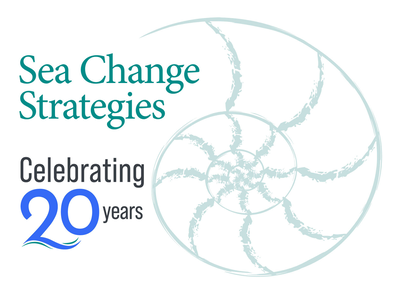New Study: How Donors Are Weathering the Extraordinary Events of 2020
2020: Public health and political chaos. Racial awakening. Financial uncertainty. Adaptation. Angst.
Whatever 2020 has been for you, it’s been equally erratic for those donors you are stewarding.
That’s why keeping a frequent pulse on donor attitudes and behaviors is critically important. So I’m thankful that OG (O’Brien/Garrett) have released their latest snapshot: A study of how donors are weathering the extraordinary events of 2020.
METHODOLOGY
As with their first 2020 study in April, the participants represent the demographic profiles and giving behavior consistent with direct mail donors.
The sample is representative of a wider direct response donor audience than just progressive organizations, including donors to some large mainstream charities. But the sample size is large enough to break out subsets across the ideological spectrum.
917 respondents completed the survey, which was initially launched on May 26. 300 interviews were conducted between June 1 and June 5, specifically adding questions about the protests after George Floyd’s murder and the rising importance of racial justice.
SHIFTS FROM APRIL
- Positive trend: The number of respondents reporting a loss of income has dropped from 35% to 25% — still significant in terms of its potential fundraising impact, but on the decline.
- Negative trend: One-third report that they are now dealing with increased stress and anxiety due to the crisis.
- Issue trend: In April, 7% of donors named racism and discrimination as an election issue. In June, 31% said racism and discrimination is an election issue.
OTHER MAJOR KEY FINDINGS
- COVID-cautious: Almost half (49%) of respondents fear the worst of the pandemic is yet to come, while only 26% think the worst is behind us. For donors living in urban areas, almost 60% think the worst is ahead.
- Health-concerned: 64% are more concerned about COVID’s impact on health than on the economy compared to 36% saying they are more concerned about “the impact of coronavirus on the economy.”
- Personally financially-optimistic: Donors are much more confident about their own economic future than about the economy as a whole. 58% feel very confident or somewhat confident about their personal finances, while only 31% say the same about the overall economy.
- Resilient mid-level: 75% of mid-level donors are confident about their own economic future. And 55% of them are confident about the overall economy.
- Giving intentions: The intention to keep giving is stronger than ever — and especially strong among midlevel donors. 73% of donors are confident they will continue giving and 84% of mid-level donors are confident they will continue giving with 55% of them being VERY confident.
ISSUE AREA FINDINGS
- COVID-agnostic: For the most part, donors continue to focus on the same array of issues as they did pre-COVID-19. The one exception may be hunger, which is getting more focus.
- Voting-rights: Progressive donors are VERY concerned about voting rights.
- International vs. domestic need: Midlevel donors and progressive donors still feel strongly that there is great need to support international organizations. But donors to more mainstream international relief groups are more conflicted by donating to need in the U.S. vs. global needs.
- Hope vs. pessimism: Donors have a certain degree of hope that the crisis will result in progress. This is most true on issues such as access to health care, living wages, and voting rights. But issues such as racism, reproductive rights, and climate change seem more intractable.
ELECTION FINDINGS
- 50/50: Donors are divided on how likely it is that Trump will win re-election: 51% think a Trump victory is very or somewhat likely. 49% think Trump winning another term is somewhat unlikely or very unlikely.
- Voting Pre-occupied: More than 80% of respondents are concerned that COVID-19 will deter people from voting in person.
So what does this mean for you and your fundraising efforts?
- Always remember how anxious and potentially overwhelmed donors are.
- Take into account the fact that financial fears are easing a bit.
- Remember that the donor community has a generous spirit, and people are willing to stretch to meet the moment.
- Don’t be afraid to make bigger asks, especially to midlevel donors.
- Expect the August-through-October window to be disrupted by intense electoral giving.
- If your organization has a role in electoral politics or access to voting, make the case for that role early and often — the more unique and focused your role, the better.
- Remember that, while donors may not be optimistic, they are hopeful. Find the path between those two instincts and show your leadership and confidence.
